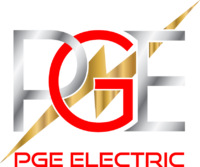Electrical FAQ & NEWS
Check out our frequently asked electrician questions and answers as well check out our news for upcoming events and projects!
Do you have question you would like see answered? Mention it in our contact form below! The message comes straight to our email inbox where we will respond with the answer and later on you might see it up on the site!
Frequent breaker trips could be a sign that the circuit is being overloaded somewhere on the property. A wire, socket, or appliance could be overheating, which could eventually cause a fire.
A light bulb that prematurely burns out in a particular lamp or socket is a sign of a poor electrical connection causing heat build-up in the lamp. Identifying the poor connection and repairing it should resolve the issue.
Yes. A loose plug in an outlet results in high electrical resistance. Electrical resistance causes overheating, which often results in a fire. An overheating outlet may also damage the connected device or appliance. Replacing an electrical outlet is a relatively inexpensive task.
Some counties and cities allow do-it-yourself wiring, but you must have a permit and your installation must be inspected by the city or county electrical inspector. Some locations require a certified contractor to install electrical wiring. Contact your local government for the specific laws in your area. Regardless, it’s a good idea to hire a licensed electrician.
More voltage at the same cycles per second (cps), which means more power to the appliance. Generally, 220V is used for large appliances, 110V is used for small appliances. Using a 110V appliance in a 220V outlet will burn out the appliance. Using a 220V appliance in a 110V outlet will make the appliance run slow or not at all.
Determine the amperage requirements. Calculate the total square footage of livable space, not including unfinished basement, attic, garage, crawl spaces. Inventory your electrical needs: heating system, air conditioning system, all electrical appliances (dryer, range, dishwasher, hot tubs, pools) etc., and then contact an electrician with this information.
The National Electric Code (NEC) requires new installations to provide a second neutral on all 220V appliances. You can replace the four-prong cord with a three-prong cord, but the safer option would be to upgrade the electrical supply to your 220V appliances.
